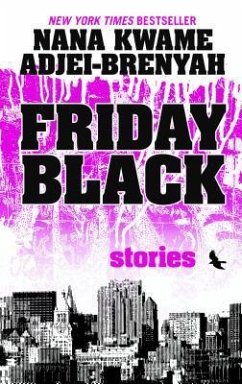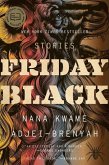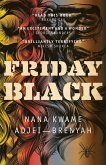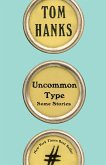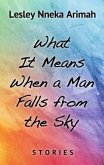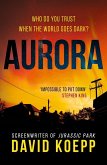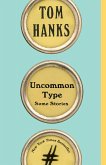A piercingly raw debut story collection from a young writer with an explosive voice; a treacherously surreal, and, at times, heartbreakingly satirical look at what it's like to be young and black in America. From the start of this extraordinary debut, Nana Kwame Adjei-Brenyah's writing will grab you, haunt you, enrage and invigorate you. By placing ordinary characters in extraordinary situations, Adjei-Brenyah reveals the violence, injustice, and painful absurdities that black men and women contend with every day in this country. These stories tackle urgent instances of racism and cultural unrest, and explore the many ways we fight for humanity in an unforgiving world. In "The Finkelstein Five," Adjei-Brenyah gives us an unforgettable reckoning of the brutal prejudice of our justice system. In "Zimmer Land," we see a far-too-easy-to-believe imagining of racism as sport. And "Friday Black" and "How to Sell a Jacket as Told by Ice King" show the horrors of consumerism and the toll it takes on us all. Entirely fresh in its style and perspective, and sure to appeal to fans of Colson Whitehead, Marlon James, and George Saunders, Friday Black confronts readers with a complicated, insistent, wrenching chorus of emotions, the final note of which, remarkably, is hope.
Hinweis: Dieser Artikel kann nur an eine deutsche Lieferadresse ausgeliefert werden.
Hinweis: Dieser Artikel kann nur an eine deutsche Lieferadresse ausgeliefert werden.
An unbelievable debut, one that announces a new and necessary American voice . . . A dystopian story collection as full of violence as it is of heart. To achieve such an honest pairing of gore with tenderness is no small feat . . . Violence is only gratuitous when it serves no purpose, and throughout Friday Black we are aware that the violence is crucially related to both what is happening in America now, and what happened in its bloody and brutal history . . . In smart, terse prose, Adjei-Brenyah is unflinching, and willing, in most of these 12 stories, to leave us without any apparent hope. But the hope is there or if it isn't hope, it's maybe something better: levelheaded, compassionate protagonists, with just enough integrity and ambivalence that they never feel sentimental. Each of these individuals carries a subtle clarity about what matters most when nothing makes sense in these strange and brutal worlds he builds . . . Adjei-Brenyah's voice here is as powerful and original as Saunders's is throughout Tenth of December . . . [Adjei-Brenyah] is here to signal a warning, or perhaps just to say this is what it feels like, in stories that move and breathe and explode on the page. In Friday Black, the dystopian future Adjei-Brenyah depicts - like all great dystopian fiction - is bleakly futuristic only on its surface. At its center, each story - sharp as a knife - points to right now. New York Time

